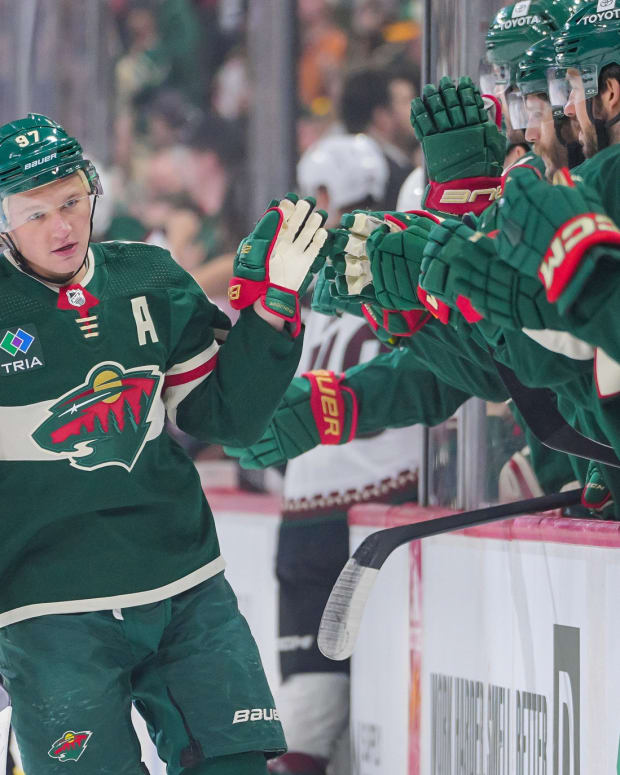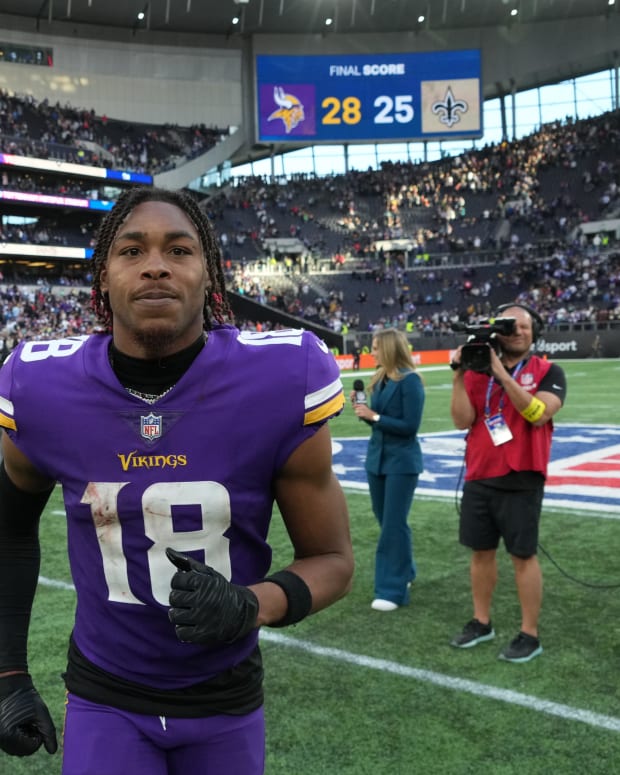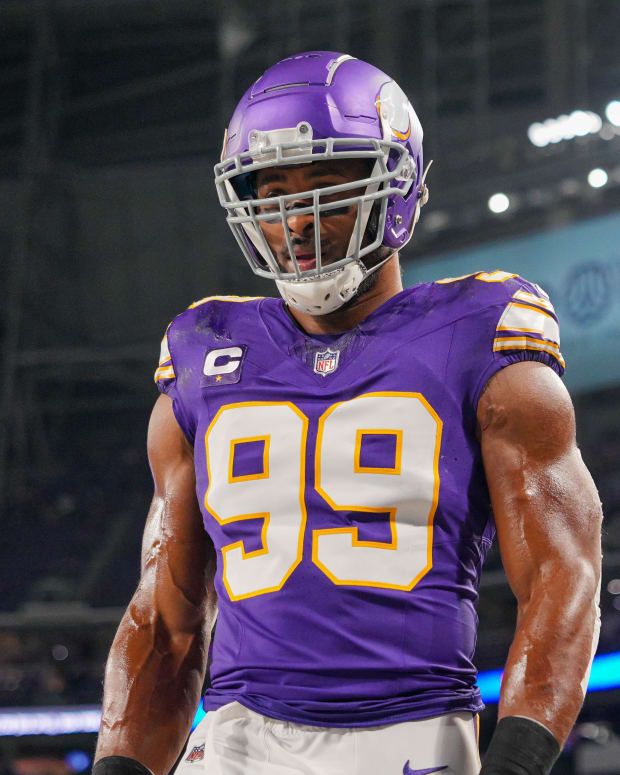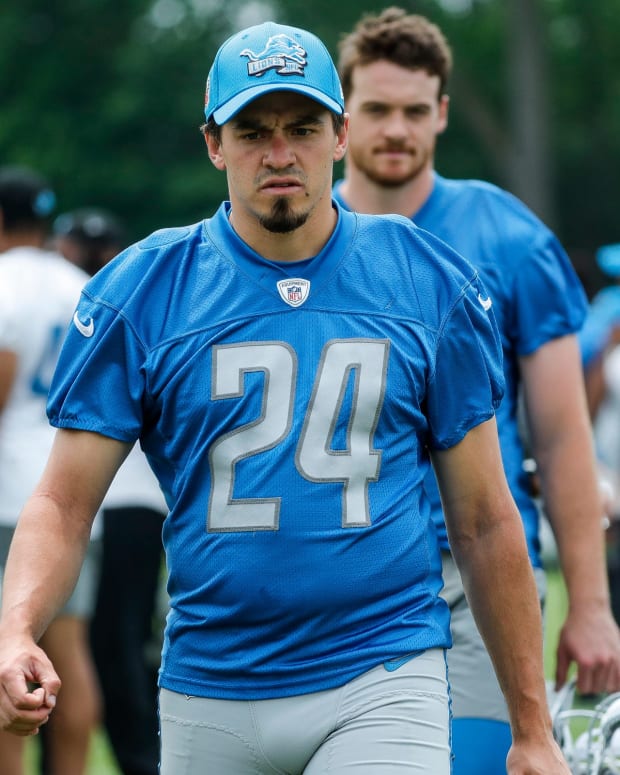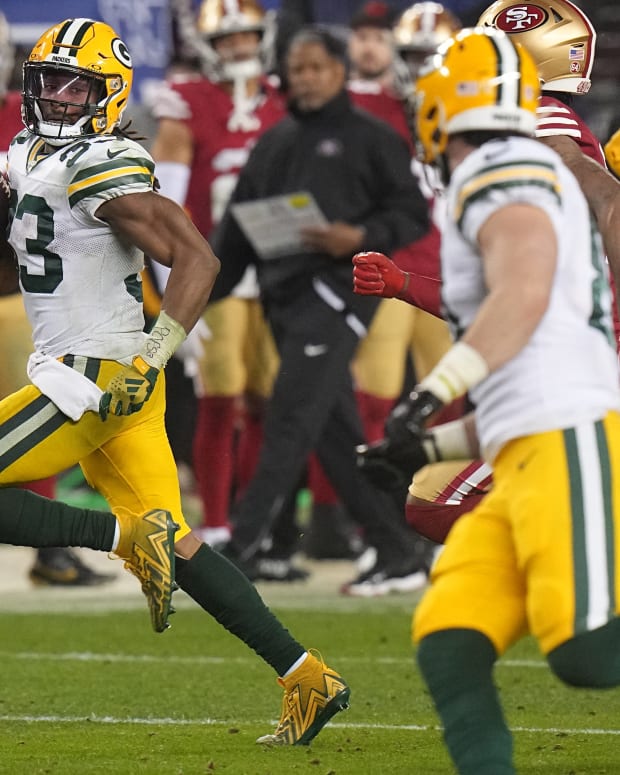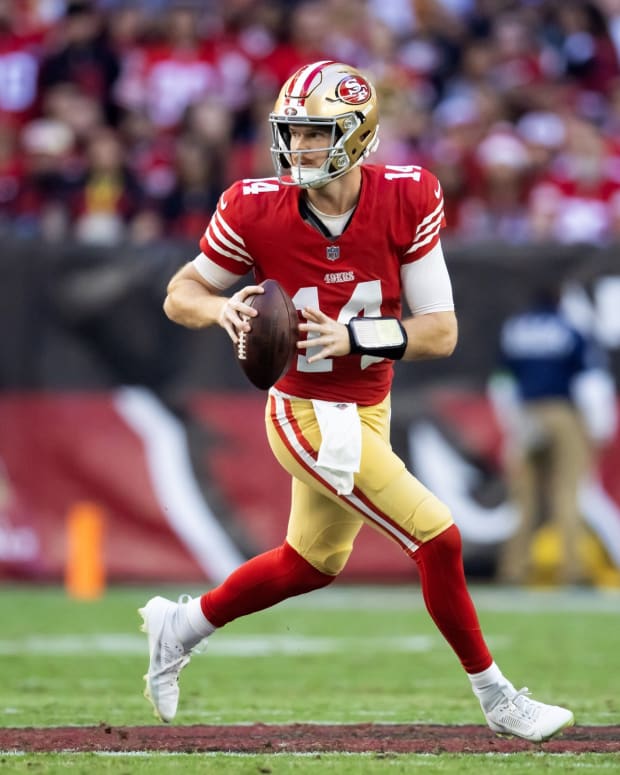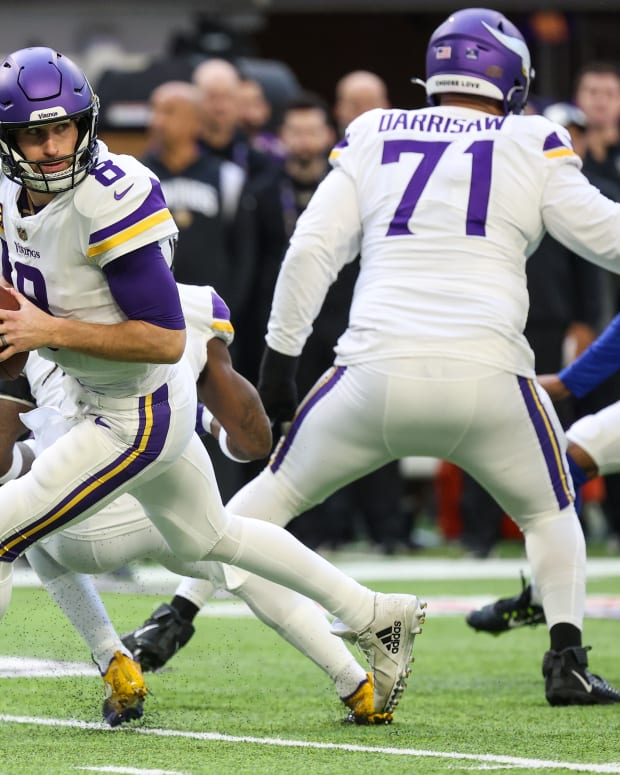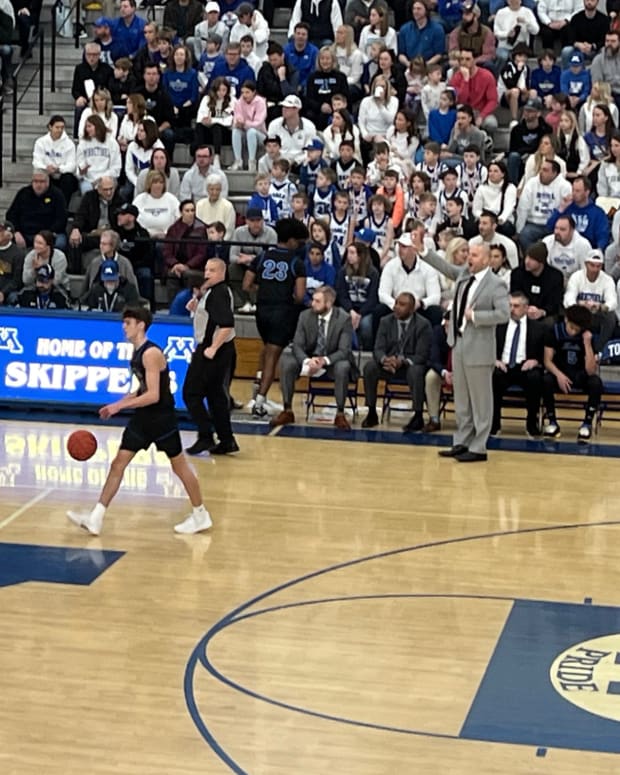SKOL Searching: Nathaniel Hackett and Kevin O'Connell epitomize the randomness in head coach hiring
Five days before the Minnesota Vikings first interviewed Kevin O’Connell for their head coaching vacancy, they met with the Green Bay Packers' offensive coordinator Nathanial Hackett.
The Vikings were “very impressed” with Hackett, per the Athletic’s Chad Graff. Without a bit more urgency from Minnesota, Hackett could’ve stayed in the division as the next Vikings head coach.
Oh, how different things might have been.
As Hackett packs his bags in Denver after a disastrous head coaching tenure with the Broncos that didn’t even last a full season, O’Connell is mulling whether to rest starters with an NFC North title locked up and seeding the only thing left to play for.
It represents the duality of the fickle coaching search process in the NFL. A seemingly random dart throw that decides one of the most important roles inside a football organization.
Hackett is the first to be fired from the 2022 class of coaches but he certainly won’t be the only one over the next several years. Recent history nearly guarantees that. Seven head coaches were hired in 2018, Mike Vrabel is the only one that’s kept his job. Zac Taylor and Matt LaFleur were hired in 2019, five others have already been fired and a sixth – Kliff Kingsbury – is likely in the coming weeks. Five coaches hired since 2020 have already been fired.
The Broncos missed the board. The Vikings are still determining if they hit a bullseye. But were either predictable?
As the situation in Denver deteriorated over the course of 15 games, it became abundantly clear Hackett was out of his depth. The offense he was charged with elevating scored just 15.5 points per game, last in the NFL. The Super Bowl-winning quarterback that he helped bring to Denver looked like a shell of his former self. The most elementary roles of the head coaching job looked tedious and uncomfortable. The Broncos racked up the most penalties in the NFL. Hackett failed to use his timeouts effectively from day one, settling for a 64-yard field goal attempt in the season opener that cost them a win against the Seahawks. It never got better. It became such a comedy of errors late in games that Hackett hired Jerry Rosburg as an assistant to help him in those late-game situations. Funnily enough, it’s Rosburg who now takes over as the interim in Hackett’s wake.
Heralded for being an affable leader when he was hired, Hackett couldn’t keep the team from public infighting late in his tenure as it all came crashing down on Christmas Day as the Rams shellacked the Broncos. It couldn’t be further from the atmosphere that’s developed in Minnesota.
Knowing what’s happened this season, it’s hard to remember what Hackett’s reputation was before he took the job. Without the benefit of hindsight, there’s no predicting the completely different paths each coach has taken since January. In fact, their backgrounds looked starkly similar.
Both Hackett and O’Connell left prominent offensive coordinator roles under young and bright head coaches. Hackett served as Matt LaFleur’s right-hand man, helping Aaron Rodgers win back-to-back MVPs. O’Connell was part of the staff that reinvigorated Matthew Stafford’s career and won the Super Bowl. Neither Hackett nor O’Connell called plays for those offenses, although Hackett did that for the Jacksonville Jaguars back in 2017 when they made a run to the AFC Championship Game. They even came from a variation of the same offensive scheme.
Both were highly sought after. Hackett interviewed with four teams – the Broncos, Vikings, Bears and Jaguars – and was a finalist for two jobs. As was O’Connell, who received interest from the Broncos, Vikings, Jaguars and Texans.
Conducting one of those blind resume tests before the season, O’Connell and Hackett look like the same person. It illustrates the randomness of hiring, particularly first-time head coaches. It’s truly a guessing game until they’re in the role. There was little way to know Hackett’s time management skills would crumble late in games, or O’Connell would be able to instill enough resolve in his team to win 11 one-score games.
That’s not to say there was no nuance in the Vikings’ hiring of O'Connell, but just as randomness has come to be accepted as a massive part of the NFL Draft, the same can be said about coaching hires.
It’s the risk teams take moving on from a known quantity. The Broncos hoped to jump into the echelon of AFC contenders after parting ways with Vic Fangio, but they ended up going in the opposite direction. Minnesota hoped to do the same with O’Connell and so far he’s delivered. Minnesota should just be elated they came up on the positive end – and in a big way.
Since 2008 only 25 of 91 head coaches made the playoffs in their first season on the job (27.5%) - 18 of those were first-time head coaches (72%).
Now, does O’Connell’s first-year success indicate more is to come? Well in recent years, here’s who has made the playoffs in their first year.
2021
Philadelphia Eagles - Nick Sirianni - Lost in the Wild Card round
2020
Cleveland Browns - Kevin Stefanski - Lost in the Divisional round
2019
Green Bay Packers - Matt LaFleur - Lost in the NFC Championship game
2018
Indianapolis Colts - Frank Reich - Lost in the Divisional round
Chicago Bears - Matt Nagy - Lost in the Wild Card round
2017
Buffalo Bills - Sean McDermott - Lost in the Wild Card round
Los Angeles Rams - Sean McVay - Lost in the Wild Card round
2016
New York Giants - Ben McAdoo - Lost in the Wild Card round
Miami Dolphins - Adam Gase - Lost in the Wild Card round
2015
None
2014
None
It certainly illustrates there’s a good shot for sustained consistency. There are three head coaching flameouts on this list – Gase, McAdoo and Nagy – each that struggled with the social aspect of being a head coach that it appears O’Connell has a strong grasp of. The other six have proven, to various degrees, to be consistently above-average head coaches.
The underlying metrics go both ways when evaluating O’Connell. Minnesota is among the least penalized teams in the NFL this year, a sign of good coaching. They’ve also remained one of the healthiest in the league, a break that’s consistently aided the Vikings. The team’s 11-0 record in one-score games can be interpreted in either direction – as the most telling statistic of this team’s luck or an indicator of O’Connell’s impact in shifting 50/50 games in the Vikings’ favor.
Though whether or not O’Connell is set up for long-term success remains a fraught conversation. The average head coaching tenure remains less than four years and without a top-tier quarterback, it likely won’t matter. What to do with Cousins and the fallout of that decision will have as much impact on O’Connell’s success over the next several years as any. But Minnesota already passed the first checkpoint. They have a competent head coach that has shown an ability to maximize their talent. It remains to be seen if O’Connell’s performance will sustain for the next four or five years, but when other coaches have built consistent contenders, the beginning often looks like this.
